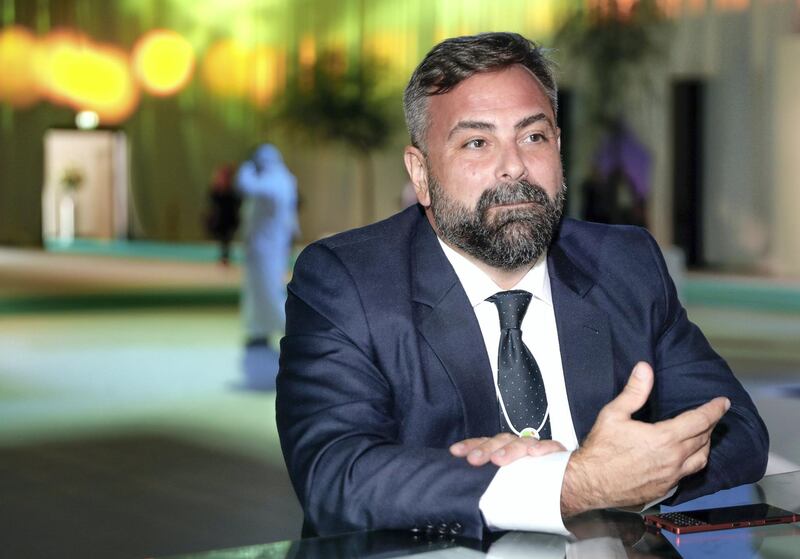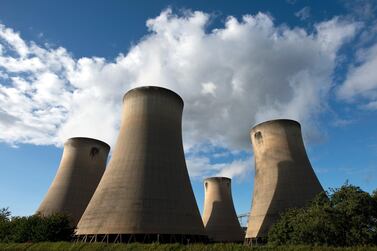A carbon market-based system is more efficient than taxes in incentivising economies such as Dubai to make a greener transition, according to Dubai Carbon Centre of Excellence's chief executive.
"What carbon markets do, is they give a commercial and financial value to environmental emissions," Ivano Iannelli told The National in an interview in Dubai.
"Fossil fuel-produced energy and renewable energy should be incentivised differently," he added.
Last week, the International Monetary Fund recommended in a new report that carbon taxes of $75 (Dh275) per tonne should be introduced by the G20 countries as the first step towards effectively reducing emissions. The proposal includes introducing a uniform carbon pricing of $25, $50 and $75 per tonne to reduce CO2 emissions by 19, 29 and 35 per cent respectively among the G20 countries.
Carbon tax is defined as duty on the supply of fossil fuels from refineries, coal mines and processing plants, in proportion to their carbon content. Enforcing such a levy, the IMF suggests, could lead to reduction in emissions, conservation of energy or a switch to greener sources as higher prices for fossil fuels are passed on.
However, Mr Iannelli, who also recommends a value of $75 per tonne, says taxation would prove "restrictive to growth".
"They're compromising in favour of the big corporates, and they want the economies that already are doing [well] to embrace a barrier," he said.
"People embrace a tax but don't necessarily change their habits, whereas a carbon market-based mechanism incentivises the growth and the maturity of technology and services which are more friendly for the environment and the transition we're aiming to achieve," he added.
Dubai Carbon, a joint venture between the emirate's utility Dubai Electricity and Water Authority, Emirates National Oil Company, Dubai Holding and Empower, was established in 2011 following an agreement between the Dubai Supreme Council of Energy and the United Nations Development Programme.
The company encourages a greater focus on greener technologies, helping local firms and households to adapt to renewables as part of a broader strategic shift from fossil fuels.
Dubai Carbon, which has helped private residences cut household electricity consumption by 30 per cent through disbursing solar kits each with a capacity of 4.5 kilowatts is now targeting scalability within the commercial sector.
"At the moment there are several thousand kits installed over the last 18 months. We are looking at roughly 15 to 18 megawatts of power being installed in residences as we speak," he said.
As residential deployment remains a relatively slow market, Dubai Carbon is looking to bring solar power to commercial units using roofspace on warehouses and schools, for example.
The company has been working with DP World to help the logistics firm generate over 20 per cent savings on their energy bill.
The overall capacity at DP world is 80MW, of which a 20MW first phase has been tendered. Other phases are split into 15MW each.
"One lot is already underway and we're just starting with the installation of another 15MW and they will come onstream by 2020," said Mr Iannelli.








